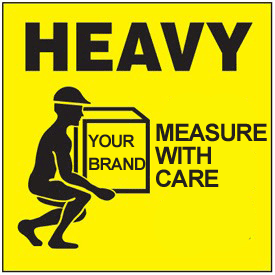Two things for you to check out. First check out the infographic below and second, check out this link: http://hub.olympic.org/


Two things for you to check out. First check out the infographic below and second, check out this link: http://hub.olympic.org/


According to a recent survey published by eMarketer, four in five North American brand marketers considered brand lift to be the most important metric for evaluating the success of their online branding efforts. But is brand lift the right metric at all? Vizu which partnered with DIGIDAY on the survey defines brand lift as the following:
Brand Lift is defined as the percentage increase in the primary marketing objective of a brand advertising campaign
But does that definition correlate to digital correctly? Should it? Marketers consider it to be the one worthy metric. Given its pure definition however, brand lift would or could always be loosely defined in the digital age as a percentage increase in followers on Twitter or Likes on Facebook, if it’s part of the marketing objective. In digital we can’t construe brand lift as the number of eyeballs, the number of likes or the numbers followers without any type of sales or action or in fact, a long term measurable return on those efforts.
The problem though is that marketers might be still associating a hollow metric (one of many in digital) to brand lift.
Consider this quote from eMarketer analyst Lauren Fisher:
“Digital’s legacy of direct-response metrics has caused many to fall back on measures that drove the first wave of online advertising—clickthrough rate and pageview.”
She’s right. A pageview and a clickthrough, though they can be construed as a positive, or as “effective” digital branding, can sometimes mean absolutely nothing. Same with Twitter, Facebook, Youtube and traditional blogs. Brand lift metrics in the digital age are, in my estimation,”one off’s. ” Indeed, marketers must break old habits of using single measures of success.

I was driving through the Florida Everglades last week when I thought, “How in the hell does someone survive and get around out here in this vast expanse of nothingness?” Which made me immediately draw a relation to the water that surrounds the glades being the internet so to speak, and the wispy reeds of sea grass or whatever the hell it is, being your customers or users of the internet. I then thought, “There’s a lot of noise out there now, was it, or is it now because of social media? Did social media create the noise?” Is social responsible for this?
The short answer is yes.
Remember Dr. Seuss’s, “Horton Hears a Who?” There’s a scene in the movie and in the book, where everyone in Whoville starts to shout in unison, “We are here, we are here”. They are trying to get Horton to hear them. Social media is like that. The plethora of platforms and devices has allowed everyone to have that voice, but the challenge for those with voices wanting to be heard, is the choices and platforms are multiplying like rabbits. For those businesses who want to bridge the gap and find those people with voices-it’s getting harder and harder to sift through the weeds and grass.
In the Everglades, you get around by airboat, which amazes me honestly. Why? Everything looks the same. If you look to your left or to your right, or forwards or backwards, it all looks exactly the same. So how does one get around? You have to have an experienced navigator. Someone who knows the lay of the land.
Here’s the correlation. I can use the best listening tools and platforms there are, but if I don’t know how to use them or I use them the wrong way, they are totally worthless to me. I’m going to airboat around the glades and find lots of nothing. If someone thinks they know how or knows what I want and they still get it wrong-Shame on me. Does that mean there’s too much noise and one cannot navigate through it? Does that mean there are no pockets of goodness in that vast landscape? Not at all. You just have to know someone who knows how to look and where to look.
A friend of mine, Mack Collier, earlier this month wrote a blog post on whether marketers should use social media personally before they use it professionally? I think we know the short answer again to that is yes. But I will end on this.
Just because you can get the boat in the water, start the engine and take off, doesn’t mean you know where you’re going or how to get there.
Infographic presented by 2D barcode service Microsoft Tag.